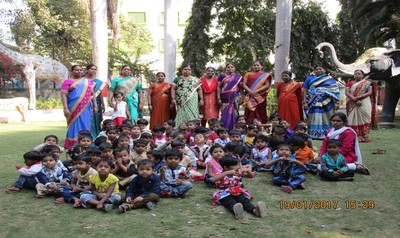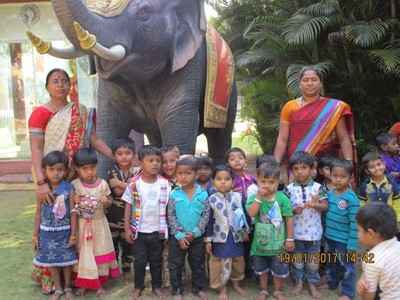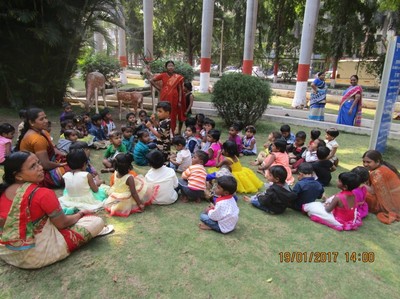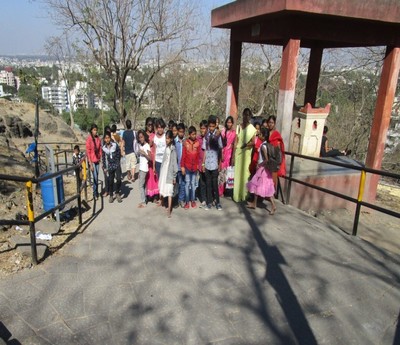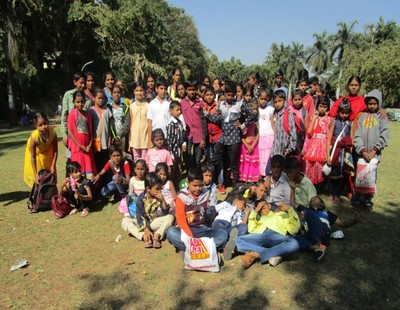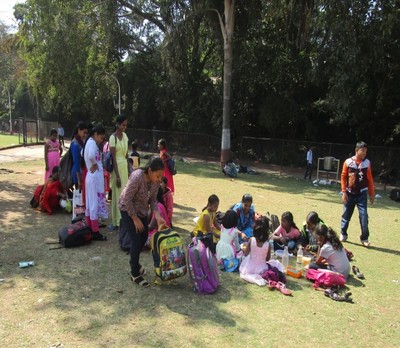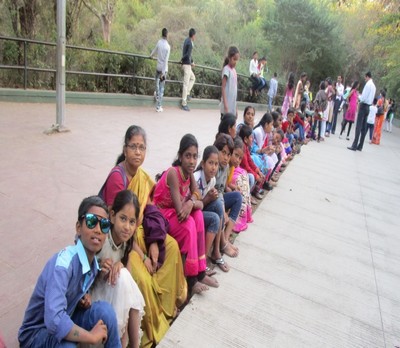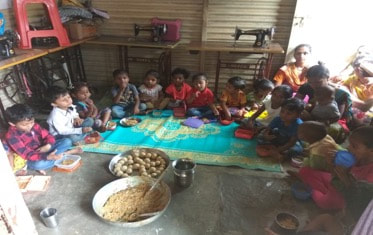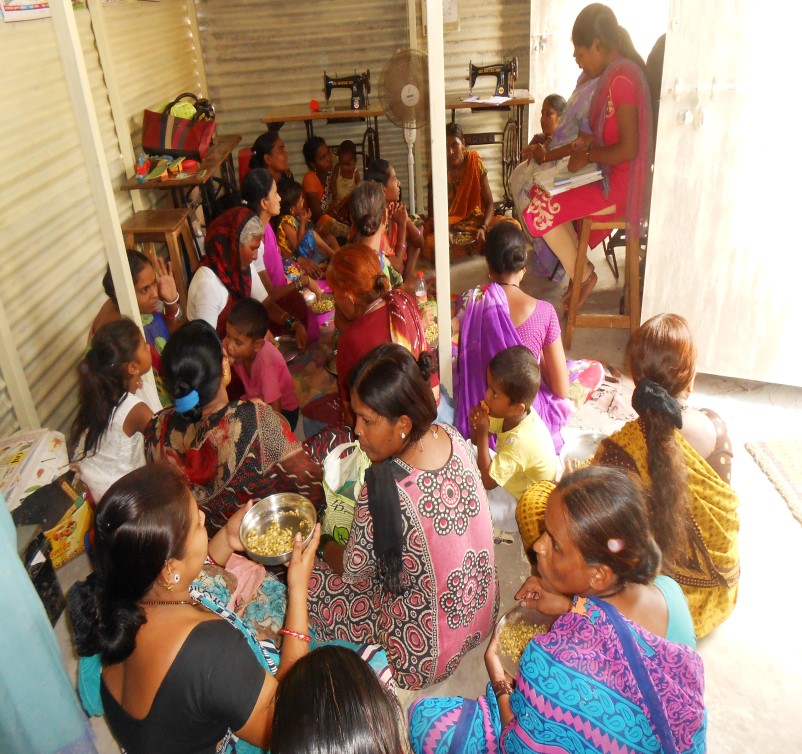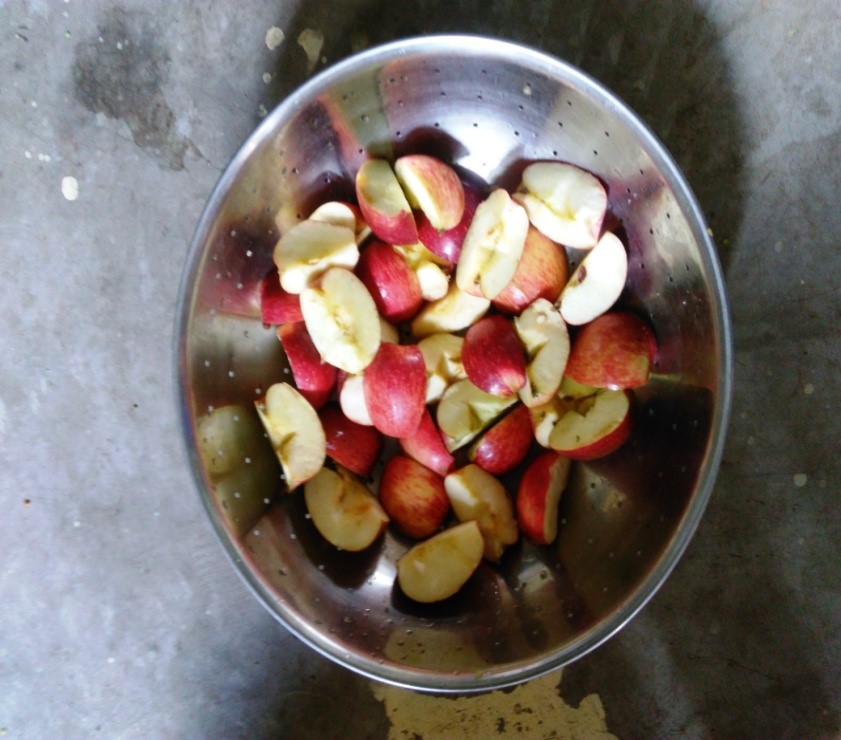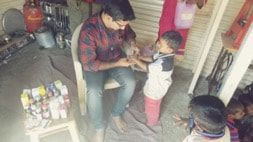Statement about loss of FCRA status, published March 19, 2023 (adapted from statement in our newsletter, published April, 2022).
A major blow for BODHI Australia occurred at the end of 2021. This was our inability (from that time) to legally provide funding for projects undertaken by the Bahujan Hitay Pune Project (BHPP) due to the revocation of the Foreign Contribution Regulation Act (FCRA) status held by BHPP's parent NGO, the acronym of which is TBMSG.
All of India's charities must hold valid and current FCRA registration or receive specific approval from India's Ministry of Home Affairs to legally receive funds from donors outside of India. In 2020 the Indian Government proposed a series of amendments to the FCRA Bill. Regrettably, in late 2021, the FCRA status of TBMSG was revoked - for reasons that remain unclear. Thousands of NGOs in India were reported as losing their FCRA status (eg see https://indianexpress.com/article/india/fcra-licence-of-6677-ngos-cancelled-in-5-years-govt-8311630/). This revocation made it impossible for BODHI Australia to provide ongoing funds to BHPP for projects such as its balwadis (kindergardens), creche, health service and slum outreach.
This change in FCRA status not only affected the ability of BHPP to provide programs and projects that were in the past reliant on foreign funding such as those provided by BODHI Australia, but also has adverse implications for BHPP employees, who previously have delivered those programs. Even more importantly, the loss of FCRA status affects those who have benefitted from participation in such projects.
BODHI Australia valued its partnership with BHPP and the work that was collectively achieved with Karunadeepa and her team over many years. It was a partnership forged on mutual respect, honesty and trust. With the support of BODHI Australia (and, of course, others), BHPP was able to provide much needed childcare for children living in the slums of Pune, enabling their mothers to work and earn a living. BODHI Australia also funded a part time, visiting doctor to provide accessible health, maternal, and neonatal care for those who could least afford it. It also funded outreach in the slums including livelihood training such as hairdressing and beauty care.
BODHI Australia, and the people who work in BODHI-funded services at the BHPP are all devastated by the removal of their FCRA status. The BHPP has, as far as we know, wound down most of its services, although a partial lifeline has been extended by a Foundation based in Bengalaru, called Azim Premji (https://azimpremjifoundation.org/). However, unless FCRA status can be regained, BODHI funded projects, programs and services associated with BHPP must cease.
BODHI Australia wrote to the new administrator of BHPP in 2022, appealing for clarification, including seeking information abou the payment of promised redundancies to Karunadeepa and some other BHPPP staff. Regrettably, there was no reply, nor even an acknowledgement. We continue to be in regular contact with Karunadeepa. To partially compensate for this loss BODHI and its supporter sent a small amount of money to Karunadeepa (details in our forthcoming audit) - this money was sourced from funds BODHI has received for advertising and overseas donors, as we believe this does not meet the strict criteria (appropriately) set by the Australian government, governing tax deductible donations for "development" rather than welfare. If any reader of this wishes to make an additional donation to help Karunadeepa and her staff please contact us, or else make a direct deposit to our non-tax deductible account - BSB 807-009; Account number: 51166224. Please include "Karunadeepa" in the message section provided by banks for transfers also your name. If you are not a regular supporter (ie thus we may not recognise you) please send an email to [email protected]. We will issue a receipt, but it won't be tax deductible.
BODHI Australia takes this opportunity to thank all the staff at the BHPP, and especially to Karunadeepa Wankade, for her leadership in managing and delivering services to the most disadvantaged and especially for the women and children living in the slums of Pune, aimed at improving opportunity and quality of life.
A major blow for BODHI Australia occurred at the end of 2021. This was our inability (from that time) to legally provide funding for projects undertaken by the Bahujan Hitay Pune Project (BHPP) due to the revocation of the Foreign Contribution Regulation Act (FCRA) status held by BHPP's parent NGO, the acronym of which is TBMSG.
All of India's charities must hold valid and current FCRA registration or receive specific approval from India's Ministry of Home Affairs to legally receive funds from donors outside of India. In 2020 the Indian Government proposed a series of amendments to the FCRA Bill. Regrettably, in late 2021, the FCRA status of TBMSG was revoked - for reasons that remain unclear. Thousands of NGOs in India were reported as losing their FCRA status (eg see https://indianexpress.com/article/india/fcra-licence-of-6677-ngos-cancelled-in-5-years-govt-8311630/). This revocation made it impossible for BODHI Australia to provide ongoing funds to BHPP for projects such as its balwadis (kindergardens), creche, health service and slum outreach.
This change in FCRA status not only affected the ability of BHPP to provide programs and projects that were in the past reliant on foreign funding such as those provided by BODHI Australia, but also has adverse implications for BHPP employees, who previously have delivered those programs. Even more importantly, the loss of FCRA status affects those who have benefitted from participation in such projects.
BODHI Australia valued its partnership with BHPP and the work that was collectively achieved with Karunadeepa and her team over many years. It was a partnership forged on mutual respect, honesty and trust. With the support of BODHI Australia (and, of course, others), BHPP was able to provide much needed childcare for children living in the slums of Pune, enabling their mothers to work and earn a living. BODHI Australia also funded a part time, visiting doctor to provide accessible health, maternal, and neonatal care for those who could least afford it. It also funded outreach in the slums including livelihood training such as hairdressing and beauty care.
BODHI Australia, and the people who work in BODHI-funded services at the BHPP are all devastated by the removal of their FCRA status. The BHPP has, as far as we know, wound down most of its services, although a partial lifeline has been extended by a Foundation based in Bengalaru, called Azim Premji (https://azimpremjifoundation.org/). However, unless FCRA status can be regained, BODHI funded projects, programs and services associated with BHPP must cease.
BODHI Australia wrote to the new administrator of BHPP in 2022, appealing for clarification, including seeking information abou the payment of promised redundancies to Karunadeepa and some other BHPPP staff. Regrettably, there was no reply, nor even an acknowledgement. We continue to be in regular contact with Karunadeepa. To partially compensate for this loss BODHI and its supporter sent a small amount of money to Karunadeepa (details in our forthcoming audit) - this money was sourced from funds BODHI has received for advertising and overseas donors, as we believe this does not meet the strict criteria (appropriately) set by the Australian government, governing tax deductible donations for "development" rather than welfare. If any reader of this wishes to make an additional donation to help Karunadeepa and her staff please contact us, or else make a direct deposit to our non-tax deductible account - BSB 807-009; Account number: 51166224. Please include "Karunadeepa" in the message section provided by banks for transfers also your name. If you are not a regular supporter (ie thus we may not recognise you) please send an email to [email protected]. We will issue a receipt, but it won't be tax deductible.
BODHI Australia takes this opportunity to thank all the staff at the BHPP, and especially to Karunadeepa Wankade, for her leadership in managing and delivering services to the most disadvantaged and especially for the women and children living in the slums of Pune, aimed at improving opportunity and quality of life.
Bahujan Hitay Women and Child Welfare Society, Pune, India
An outing for children from a slum to Empress Gardens, Pune, Maharashtra, India, January, 2017.
Since 2005 we have been supporting the work of Karunadeepa, born as a dalit, and earlier working for Jeevak* in Pune, Maharashtra, India. What began as a project for Tribal Child Health & early education has expanded to support income generation, and over forty women's health, kindergartens and after school study groups. This work is in memory of Susan Woldenberg Butler, BODHI's co-founder. In 2017 the Bahujan Hitay Pune Project was started. More photos on Flickr here.
Their website is here (http://bhpuneproject.in/).
* Jeevak is the name of a famous doctor who was a companion of the Buddha
Their website is here (http://bhpuneproject.in/).
* Jeevak is the name of a famous doctor who was a companion of the Buddha
|
|
|
|
| |||||
Hadapsar crèche report, Pune, for 2018
|
This report has been edited (to make it easier to read).
The Hadapsar crèche again ran successfully in 2018, benefiting 28 children of Gosavi vasti (editor: an area in Hadaspar where most of the people identify as a group called Gosavi). Mrs Chaya Kate, a teacher, assisted by Mrs. Rubina Khan, take care of the children. Daily. from Monday to Saturday, the crèche is open for children from 9.30 am to 1 pm. (ed: This gives very poor, hard-working parents a chance to earn money.) In the morning the teacher leads prayer, then teaches motivational songs. After that, the assistant teacher prepares nutritious food for children. Sometimes the children receive fruits, every week they are given eggs. (Editor: eggs are donated by the National egg board). Every month there is an evening meeting, involving staff (Shanti Da, Manisha and Karunadeepa) and the parents, to discuss the progress of students and to invite suggestions and any queries about the crèche. The teacher also discusses hygiene and health with the students. Parents are very happy about the progress of their children. A program to improve parental awareness of nutritious food was held in March, June and September 2018. Topics discussed at these meetings included the importance of health, nutritious foods available at home, and how they should be prepared. Especially valuable are peanut laddoo, (ed: peanuts, sugar and cardamon, if available), carrot, beetroot, eggs, and leafy vegetables (ed: including during pregnancy). (Ed: folic acid and calcium are provided, for free, to expecting mothers, by the government of India. Dahl and rice are also an important combination; although this knowledge is ancient and traditional in India, in some cases the consumption of dahl has fallen due to poverty, and perhaps, failure to understand the importance of the combination). |
More than 30 mothers attended each of these programs. A program to raise awareness about early childhood marriage was also organized (Ed: to advise that there are alternatives and that moderately delayed marriage is likely to lead to less poverty and better health). About 25 women participated in this. Women were also taught about relevant government schemes. The children also receive a monthly medical check, by Doctor Rajesh Nair. who checks height and weight, and provides advice and medicine to children, especially for those who are underweight.
Every year the children go on an outing together, to a garden. All the activities of Hadapsar crèche, including the awareness program, are running successfully.
List of Children:- 28 names and birth dates provided
-------------------------------
Empowering women: Indian women can successfully better their own lives and those of their families given the opportunity. Yet today nearly half the women in India not have bank or savings accounts; mobile phones or internet access - let alone property. This statistic is a general one that cuts across caste and class. Education is a key to improvement UN India Business Forum Gender Equality: Women’s Economic Empowerment. BHPP does this through Vocational Training (eg Sewing Class, Fashion Designing, Beauty Parlor, Bag making, Henna, Jewelry Making) and holding workshops on the rights of women and providing leadership training and counselling.
Family Planning: The mothers in the Hadaspar project are told about family planning, and its importance, and referred to the Asha workers (Nurse) from the Primary health centre where they can access contraceptives free of charge (including the pill and condoms) and more information.
Kitchen gardens: In the slum there is not enough space to grow vegetables but where there is space people plant fruit trees such as mango, guava, chickoo, tamarind, lime, custard apple, papaya, curry leaves and drumsticks.
Every year the children go on an outing together, to a garden. All the activities of Hadapsar crèche, including the awareness program, are running successfully.
List of Children:- 28 names and birth dates provided
-------------------------------
Empowering women: Indian women can successfully better their own lives and those of their families given the opportunity. Yet today nearly half the women in India not have bank or savings accounts; mobile phones or internet access - let alone property. This statistic is a general one that cuts across caste and class. Education is a key to improvement UN India Business Forum Gender Equality: Women’s Economic Empowerment. BHPP does this through Vocational Training (eg Sewing Class, Fashion Designing, Beauty Parlor, Bag making, Henna, Jewelry Making) and holding workshops on the rights of women and providing leadership training and counselling.
Family Planning: The mothers in the Hadaspar project are told about family planning, and its importance, and referred to the Asha workers (Nurse) from the Primary health centre where they can access contraceptives free of charge (including the pill and condoms) and more information.
Kitchen gardens: In the slum there is not enough space to grow vegetables but where there is space people plant fruit trees such as mango, guava, chickoo, tamarind, lime, custard apple, papaya, curry leaves and drumsticks.
Karunadeepa's story and award: see
Why this is not child sponsorship
1. The identities of the children change every year
2. We have no individual relationship with any of the children (nor does any donor)
3. There are other elements involved to the program, including several meetings per annum between the staff and the children's mothers (and sometimes, fathers)
4. All administration is done locally; BODHI is "hands off"
5. Although Colin has twice visited the creche (in 2015 and 2018) foreigner visitors are not routinely taken to see the classes; visitors (unless representatives of the funders) see only the office and meet only the staff.
1. The identities of the children change every year
2. We have no individual relationship with any of the children (nor does any donor)
3. There are other elements involved to the program, including several meetings per annum between the staff and the children's mothers (and sometimes, fathers)
4. All administration is done locally; BODHI is "hands off"
5. Although Colin has twice visited the creche (in 2015 and 2018) foreigner visitors are not routinely taken to see the classes; visitors (unless representatives of the funders) see only the office and meet only the staff.
